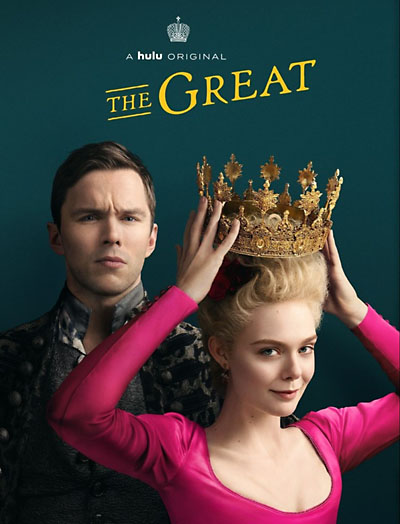by Thomas O’Dwyer

The Great is a splendid historical drama running on the Hulu streaming channel, a delightful and entertaining tale, full of joie de vivre, set in the court of Russian Emperor Peter III and his more famous consort, Catherine the Great. The only annoyance associated with this production is arguments online questioning how true it is. Many commentators seem to have missed the self-mocking tag line in the opening title of each episode: The Great: An Occasionally True Story and, later in the series, The Great: An Almost Entirely Untrue Story. The success of the British-Australian-American production has nothing to do with the quotidian facts of Peter and Catherine’s actual lives but with the racy, outrageous script, terrific cinematography, and endearing performances by Elle Fanning and Nicholas Hoult in the starring roles.
There are similar grumpy and pedantic debates over “how true” were events in The Tudors, Wolf Hall, The Crown. Indeed, any time a writer of historical fiction puts metaphorical pen to paper, the peeves begin. One can only counter by asking “how true” are the books written by professional historians. Does anyone read the anti-Semitic David Irving to learn about the Holocaust, or David Barton’s The Jefferson Lies, which the History News Network ten years ago named as “the least credible history book in print.” Ask just about anyone from any African country what they think of the histories of their continental cultures written by patronising palefaces in faraway imperial capitals. Read more »
